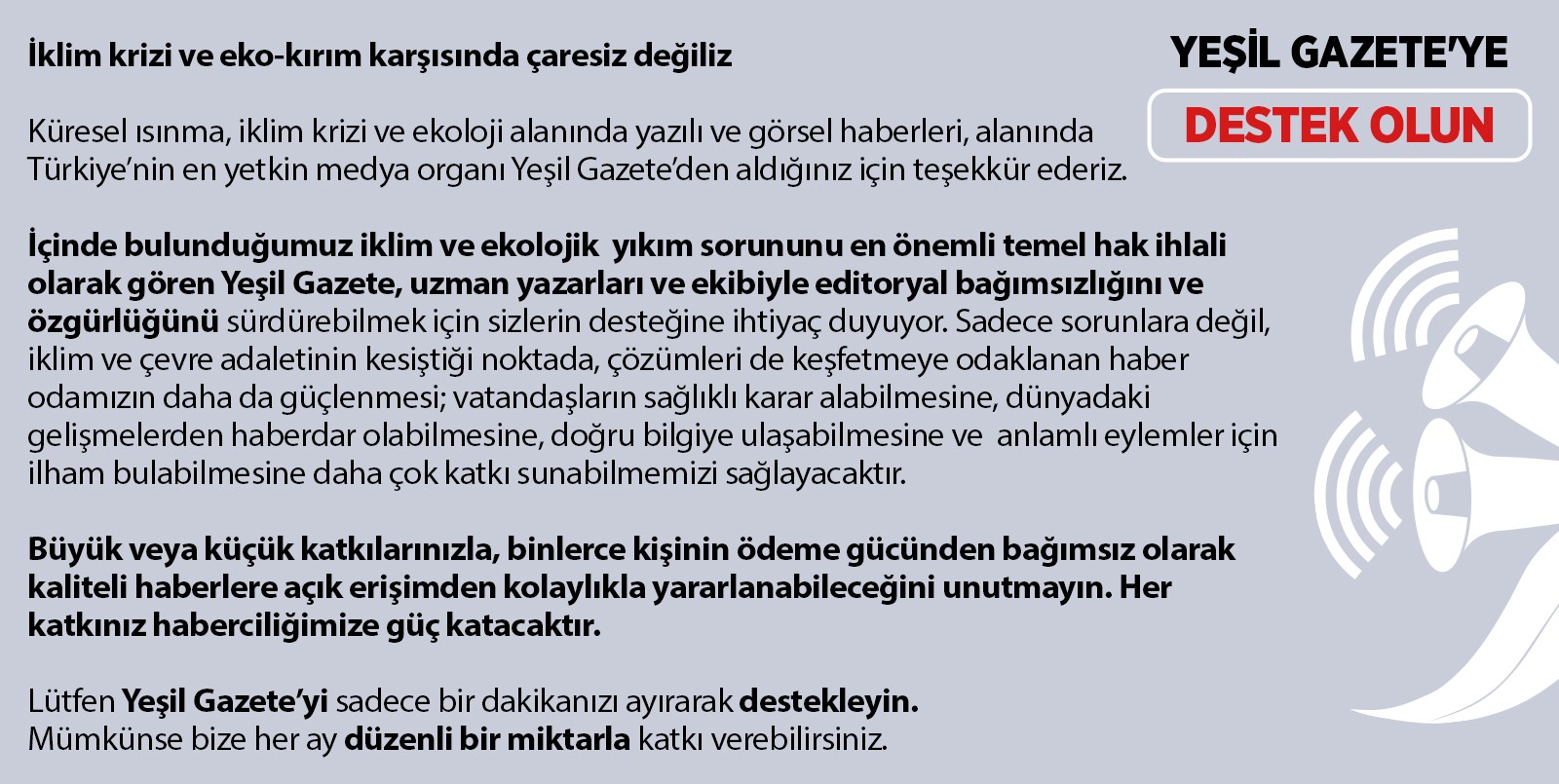The Climate Change Performance Index (CCPI), an update of Germanwatch‘s Climate Change Performance Index (CCPI) to ensure transparency in national and international climate policies, was published today.
The index evaluates the climate performance of 63 countries and the EU, which account for more than 90 percent of global greenhouse gas emissions, in the categories of greenhouse gas emissions, renewable energy, energy use and climate policy.
According to the index, Turkey ranked 56th this year and was among the countries with very low performance. Ranked 47th in 2022, Turkey received a medium rating in the Renewable Energy category, low ratings in the Greenhouse Gas Emissions and Energy Use categories, and very low ratings in the Climate Policy category.
‘No plan to abandon fossil fuel, plans to increase emissions’
Turkey plans to increase its greenhouse gas emissions by 2038. CCPI states that the fact that Turkey’s greenhouse gas emissions reduction policy is calculated within the framework of the current situation and does not aim to reduce the net amount of greenhouse gas emissions is effective in the performance assessment.

In terms of energy, we are heavily dependent on fossil fuels. There is no policy to phase out fossil fuels and there is still gas and oil exploration in different regions.
Subsidizing fossil fuels is also one of the prominent policies in Turkey’s assessment. CCPI experts call for an end to fossil fuel exploration and extraction and the closure of old coal-fired power plants. They also call for transition plans for coal regions to be developed with a fair perspective.
The National Energy Plan, published by the Ministry of Energy and Natural Resources in January 2023, envisions high levels of renewable capacity, particularly solar power. The plan does not include a phase-out of coal. While it envisages a gradual reduction in the share of fossil fuels in electricity generation, one criticism is that legislation supporting decentralized renewable energy generation has been abolished and most projects have been centralized and large-scale. For wind energy, the targets are not ambitious enough.
Policy recommendations
CCPI experts recommend making it mandatory to install solar panels on the roofs of public buildings, parking lots and open marketplaces. In addition, they emphasize that regulations should be made to facilitate the establishment and maintenance of energy cooperatives with fewer legal burdens and obstacles.
The organization recommends the following climate policy changes for Turkey:
- Turkey’s Nationally Determined Contribution should be updated with an ambitious absolute mitigation target
- Adopt a fair coal phase-out policy and transfer coal subsidies to the renewable energy support program.
- Implement policy instruments to decarbonize all sectors
- A more transparent and participatory approach should be adopted in the draft climate change law currently being prepared.

‘Turkey is one of four countries that oppose both fossil fuel phase-out and phase-down’
Elif Cansu İlhan, Turkey Climate and Energy Policy Officer at Climate Action Network Europe (CAN Europe), evaluates Turkey’s climate performance as follows:
“The National Determined Contribution (NDC) that Turkey submitted last year is not an emission reduction plan. Turkey announced that it plans to increase emissions by 30% by 2030 compared to 2020. The demand and expectation of civil society was for Turkey to update its NDC at COP28 and not start emission reductions. However, Turkey’s National Energy Plan published in January 2023 and Turkey’s COP28 performance showed that Turkey insists on lagging behind in climate action. While Turkey includes new coal-fired power plants in its National Energy Plan, it does not plan to phase out coal. At COP28, while countries with much higher coal dependency than Turkey took steps for coal phase-out and against new coal, Turkey was one of the four countries that opposed both coal phase-out and fossil fuel reductions in the negotiations. In addition, it has not yet joined any of the commitments in areas such as renewable energy, energy efficiency and health, which are among the positive outcomes of the COP. It seems normal for Turkey to fall back this year in the ranking that it has risen in the past years by ratifying the Paris Agreement.”


